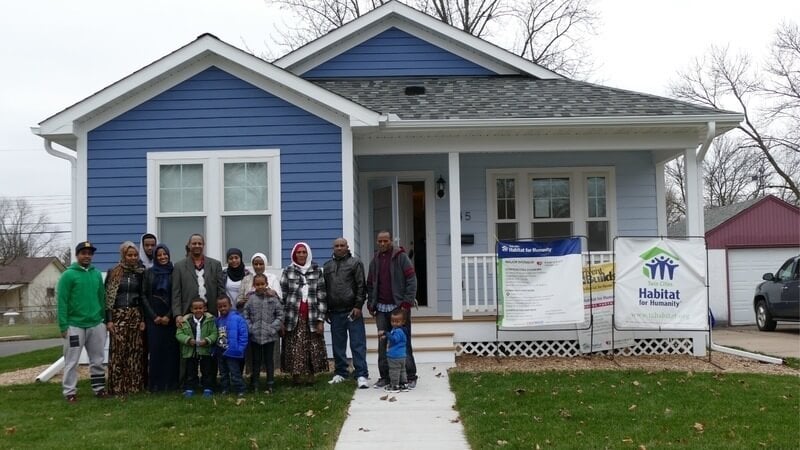The Key to Achieving Stability with Affordable Homeownership
The Key to Achieving Stability with Affordable Homeownership
Blog Article
Inexpensive Homeownership Options for First-Time Homebuyers
As the housing market proceeds to evolve, newbie property buyers encounter special challenges in securing budget-friendly homeownership choices. These campaigns not only assist in homeownership yet additionally foster neighborhood security and financial development.
Federal Government Support Programs
Entitlement program programs play an essential role in making homeownership achievable for many people and families. These programs aim to reduce the monetary problem connected with purchasing a home, especially for first-time customers. By using economic help, gives, and tax incentives, federal government efforts help connect the space between climbing real estate costs and the acquiring power of prospective homeowners.
Different programs are available at the government, state, and neighborhood degrees. The Federal Real Estate Administration (FHA) provides insurance on finances, enabling lenders to offer more positive terms, such as reduced down payments and minimized rate of interest prices. Additionally, state and city governments frequently have their very own efforts, which might include down settlement aid programs, property buyer education programs, and favorable home mortgage terms.
These programs are developed to deal with the distinct difficulties faced by reduced- to moderate-income family members, including limited savings and credit rating history. By cultivating an environment where homeownership is more obtainable, entitlement program programs not only sustain private goals but also add to area stability and economic development. Recognizing and making use of these resources can dramatically enhance the potential customers of successful homeownership.
Low-Down-Payment Mortgages
For many aspiring homeowners, low-down-payment home mortgages present a feasible path to homeownership, especially in today's difficult real estate market. These home loan options usually call for down repayments ranging from 3% to 5%, making it much easier for newbie customers to go into the marketplace without the problem of conserving for a considerable down settlement.
Different loan providers supply low-down-payment programs, consisting of traditional financings backed by Fannie Mae and Freddie Mac, along with government-backed options like FHA lendings. These home loans are made to accommodate people with minimal cost savings while still supplying affordable rate of interest rates. Significantly, they permit purchasers to maintain even more money for various other vital expenditures, such as relocating prices, home evaluations, and potential restorations.
Nevertheless, potential house owners need to bear in mind the compromises connected with low-down-payment home loans. A smaller deposit may cause higher monthly repayments and the need of private mortgage insurance (PMI), which shields lending institutions in case of default. It is vital for newbie purchasers to conduct comprehensive study and seek advice from with mortgage professionals, guaranteeing they select a low-down-payment choice that straightens with their long-term financial goals.
First-Time Buyer Grants
Lots of novice property buyers discover that gives can substantially alleviate the financial burden of buying a home, enhancing low-down-payment mortgage choices. These gives, usually given by state and city governments or non-profit companies, provide financial assistance that does not require repayment, making them an attractive choice for those going into the housing market.
Qualification for newbie buyer grants typically relies on income, credit reliability, and the acquisition price of the home. Lots of programs are made to help reduced- to moderate-income households, ensuring that assistance gets to those who require it most. The application process often involves documentation of monetary standing, property buyer education programs, and occasionally also a dedication to remain in the home for a specific click for info period.
The quantity helpful varies commonly, with some grants giving several thousand bucks to aid cover shutting prices or down payments. Researching available grants in your area is vital, as programs often alter and might have specific needs. By leveraging these financial sources, newbie homebuyers can make homeownership much more accessible, ultimately achieving their desire of having a home while mitigating the preliminary economic strain.
Cutting-edge Area Campaigns
Cutting-edge neighborhood efforts are playing an essential role in increasing economical homeownership options for residents. These campaigns frequently include joint efforts between regional governments, non-profit organizations, and economic sector stakeholders to develop sustainable housing solutions tailored to community requirements.
One significant strategy is the establishment of community land trusts (CLTs), which allow residents to acquire homes while the land stays possessed by the trust. This version helps keep affordability gradually and protects against speculative rate boosts. Additionally, CLTs often supply academic sources and assistance solutions to equip novice property buyers.
An additional efficient campaign is the growth of mixed-income real estate my blog projects, which mix inexpensive systems with market-rate homes. This approach promotes comprehensive communities and reduces the stigma typically related to low-income housing. Additionally, city governments are increasingly supporting zoning reforms to promote the building of accessory dwelling units (ADUs), which can provide added rental earnings for homeowners while increasing housing schedule.

Tips for Budgeting and Saving

Next, develop a devoted cost savings account specifically for your future home acquisition. Goal to save a percentage of your revenue constantly, ideally 20% or more, to build a significant down payment. Make use of automation devices, such as straight down payment or automatic transfers, to make conserving easier and a lot more regular.
Furthermore, take into consideration adopting the 50/30/20 guideline: designate 50% of your income to demands, 30% to wants, and 20% to cost savings and debt settlement - Affordable Homeownership. This approach promotes well balanced financial wellness

Final Thought
In recap, budget friendly homeownership options for novice buyers encompass various sources such as federal government aid programs, low-down-payment home loans, and gives. By leveraging these economic devices, individuals can browse the complexities of homeownership, eventually adding to an extra equitable housing landscape.
As the real estate market continues to evolve, novice property buyers deal with unique difficulties in protecting economical homeownership alternatives. By promoting a setting where homeownership is extra available, federal government aid programs not just support private desires yet additionally add to area security and financial growth. By leveraging these economic resources, novice buyers can make homeownership more accessible, ultimately achieving their desire of possessing a home while alleviating the preliminary financial pressure.
In summary, economical homeownership choices for new buyers include various resources such as federal government support programs, low-down-payment mortgages, and gives. By leveraging these financial devices, people can navigate the complexities of homeownership, ultimately contributing to a much published here more equitable housing landscape.
Report this page